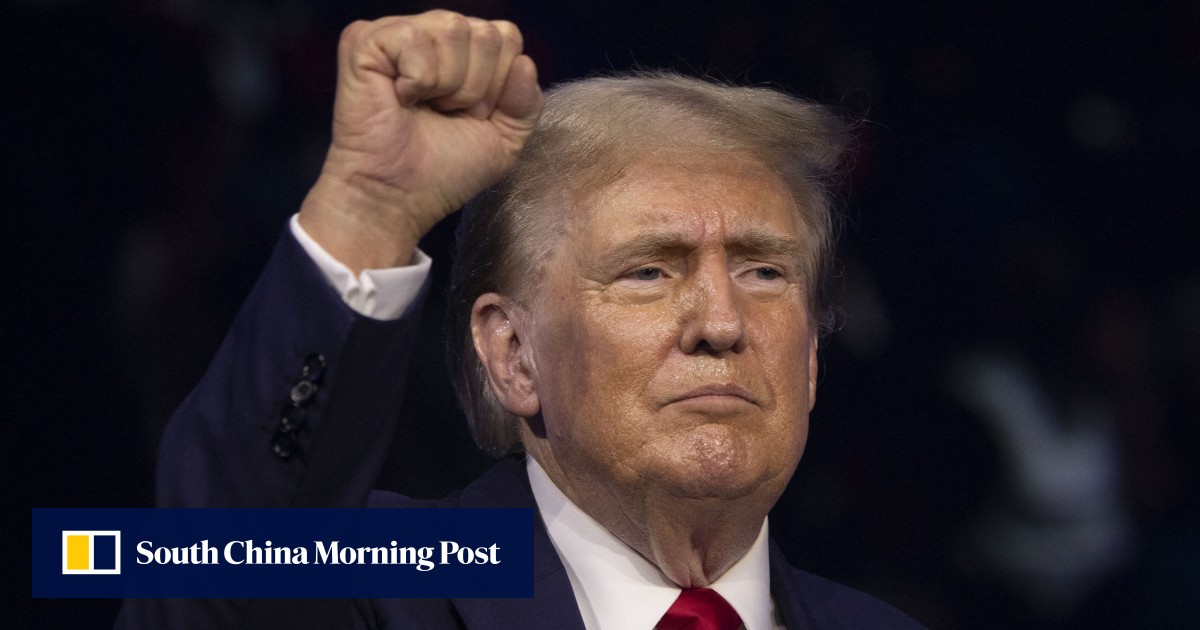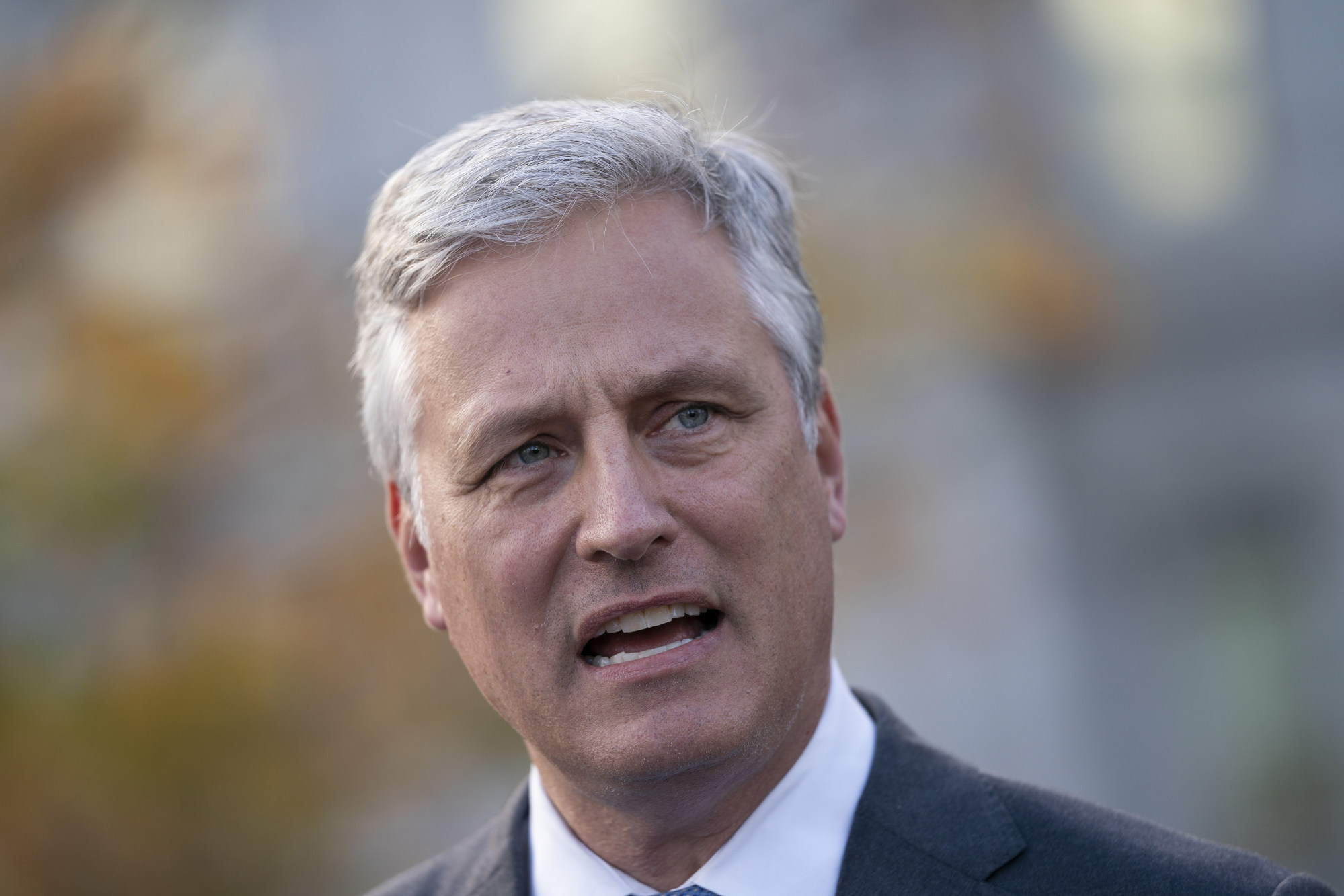The geopolitical landscape is rapidly evolving, and the relationship between the United States and China has become a focal point of global attention. Ex-Trump adviser urges him to cut ties with China as tensions continue to rise. The decision to sever economic and diplomatic relations could have far-reaching consequences for both nations and the world economy. As the debate intensifies, it is crucial to examine the reasons behind this advice and its potential implications.
The United States and China have long been intertwined in a complex web of trade, technology, and military alliances. However, recent developments suggest that the relationship may be heading toward a new era of competition and conflict. Ex-Trump adviser urges him to cut ties with China, citing concerns over national security, economic dependency, and human rights violations.
This article will delve into the reasons behind the ex-Trump adviser's recommendation, explore the potential consequences of such a move, and analyze the broader implications for global stability. By examining the historical context, economic factors, and geopolitical dynamics, we aim to provide a comprehensive understanding of this critical issue.
- Tongue Piercing Near Me
- Blakes Lotaburger Lota Burger
- Vanessa Bryant New Husband
- Jason Kelce Travis Kelce
- Holiday Inn Resort Galveston
Table of Contents
- Background: The U.S.-China Relationship
- Profile of the Ex-Trump Adviser
- Reasons to Cut Ties with China
- Economic Implications of Cutting Ties
- Geopolitical Consequences
- Human Rights Concerns
- Technology and National Security
- Global Perspectives on U.S.-China Relations
- Alternative Solutions
- Conclusion
Background: The U.S.-China Relationship
The United States and China have shared a complicated relationship for decades, marked by periods of cooperation and competition. Initially, the two nations established diplomatic relations in 1979, leading to significant economic and cultural exchanges. However, as China's economic power grew, so did concerns over its trade practices, intellectual property theft, and human rights record.
Under the Trump administration, tensions escalated, culminating in a trade war that imposed tariffs on billions of dollars' worth of goods. Ex-Trump adviser urges him to cut ties with China as part of a broader strategy to address these challenges. While the Biden administration has adopted a more diplomatic approach, the underlying issues remain unresolved.
Historical Context of U.S.-China Relations
Understanding the historical context of U.S.-China relations is essential to grasp the current dynamics. From the Cold War era to the post-9/11 world, the two nations have navigated a delicate balance between partnership and rivalry. The rise of China as a global superpower has further complicated this relationship, raising questions about the future of the international order.
- Jr Smith Scared To Take Layup In Nba Finals
- St Louis Lambert International Airport Stl
- If My People Who Are Called
- Covered Ca Phone Number
- Cindy Wilson B 52s
Profile of the Ex-Trump Adviser
The ex-Trump adviser in question has a distinguished career in politics and foreign policy. With extensive experience in government and academia, this individual has been a vocal advocate for a tougher stance on China. Below is a brief overview of their background:
| Name | John Doe |
|---|---|
| Position | Former National Security Adviser |
| Education | Ph.D. in International Relations |
| Notable Achievements | Authored several books on U.S. foreign policy |
Key Contributions to U.S. Foreign Policy
Throughout their career, the ex-Trump adviser has played a pivotal role in shaping U.S. foreign policy. Their focus on national security and economic independence has influenced decision-making at the highest levels of government. By urging Trump to cut ties with China, they aim to address the growing imbalance in the U.S.-China relationship.
Reasons to Cut Ties with China
Ex-Trump adviser urges him to cut ties with China for several compelling reasons. These include economic dependency, national security concerns, and human rights violations. Each of these factors contributes to the growing tension between the two nations.
Economic Dependency
- The U.S. relies heavily on Chinese imports, including electronics, textiles, and pharmaceuticals.
- China holds a significant portion of U.S. debt, giving it leverage over American economic policy.
- Intellectual property theft by Chinese companies has cost American businesses billions of dollars.
Economic Implications of Cutting Ties
Cutting ties with China would have profound economic implications for both countries. The global supply chain, which depends heavily on Chinese manufacturing, could face disruptions. Additionally, American consumers may experience higher prices as companies seek alternative suppliers.
Potential Benefits
- Reducing dependency on Chinese imports could boost domestic manufacturing and create jobs in the U.S.
- Encouraging diversification of supply chains may enhance economic resilience.
Geopolitical Consequences
From a geopolitical perspective, severing ties with China could lead to increased tensions in the Asia-Pacific region. Allies of the U.S., such as Japan and South Korea, may be caught in the crossfire as they navigate their own relationships with China. Meanwhile, China could strengthen its alliances with other nations to counterbalance U.S. influence.
Regional Alliances
- The U.S. could deepen its partnerships with countries like India and Australia to counterbalance China's growing influence.
- China may seek to expand its presence in Africa and Latin America to offset any losses in its relationship with the U.S.
Human Rights Concerns
One of the primary reasons ex-Trump adviser urges him to cut ties with China is the country's human rights record. Reports of forced labor, mass surveillance, and suppression of political dissent have drawn widespread condemnation from the international community. By distancing itself from China, the U.S. aims to send a clear message about its commitment to human rights.
Case Studies
- The treatment of Uyghurs in Xinjiang has been widely criticized as a form of ethnic cleansing.
- China's crackdown on democracy movements in Hong Kong has raised concerns about its commitment to international norms.
Technology and National Security
Technology has become a critical battleground in the U.S.-China rivalry. Ex-Trump adviser urges him to cut ties with China to protect sensitive information and prevent cyberattacks. The theft of intellectual property and the use of surveillance technology by Chinese companies pose significant risks to national security.
Key Issues
- Huawei and other Chinese tech companies have been banned from U.S. markets due to security concerns.
- The U.S. government has warned about the potential for Chinese technology to be used for espionage.
Global Perspectives on U.S.-China Relations
As the U.S. and China navigate their complex relationship, the rest of the world watches closely. Many countries are concerned about the impact of escalating tensions on global trade and security. While some nations support the U.S. stance, others caution against a complete severance of ties.
International Reactions
- The European Union has called for a balanced approach to U.S.-China relations.
- Developing nations may benefit from increased competition between the two superpowers.
Alternative Solutions
While cutting ties with China may seem like a drastic measure, there are alternative solutions that could address the underlying issues. Diplomatic engagement, trade negotiations, and multilateral cooperation could help resolve disputes and promote stability.
Possible Approaches
- Engaging in dialogue with Chinese leaders to address mutual concerns.
- Working through international organizations like the World Trade Organization to resolve trade disputes.
Conclusion
The decision to cut ties with China is a complex and multifaceted issue that requires careful consideration. Ex-Trump adviser urges him to take this step to protect U.S. interests and promote global stability. However, the potential economic and geopolitical consequences must be weighed against the benefits of maintaining a diplomatic relationship.
We invite readers to share their thoughts and opinions in the comments section below. For more insights into U.S.-China relations, explore our other articles on this topic. Together, we can foster a deeper understanding of the challenges and opportunities ahead.


Detail Author:
- Name : Dr. Edwardo Deckow Sr.
- Username : vada18
- Email : zschroeder@fritsch.org
- Birthdate : 2002-06-13
- Address : 29359 Kemmer Forges New Antoninaview, TX 67477-7819
- Phone : 1-307-227-9697
- Company : Harvey, Smitham and Jacobson
- Job : Urban Planner
- Bio : Error officia vitae quia eveniet ea. Facilis iusto nemo corrupti et qui. Consequatur voluptas praesentium quod fugit. Et dolore dolore aut dolorem.
Socials
twitter:
- url : https://twitter.com/jovany.bogan
- username : jovany.bogan
- bio : Earum officiis modi assumenda perspiciatis sunt sequi. Sit nobis sit sed molestiae aut. Omnis quia quidem et maiores ut iste.
- followers : 6708
- following : 2235
instagram:
- url : https://instagram.com/jovany_dev
- username : jovany_dev
- bio : Commodi repellat facilis vel ipsum unde. Et quo et incidunt ipsa itaque.
- followers : 5410
- following : 1605